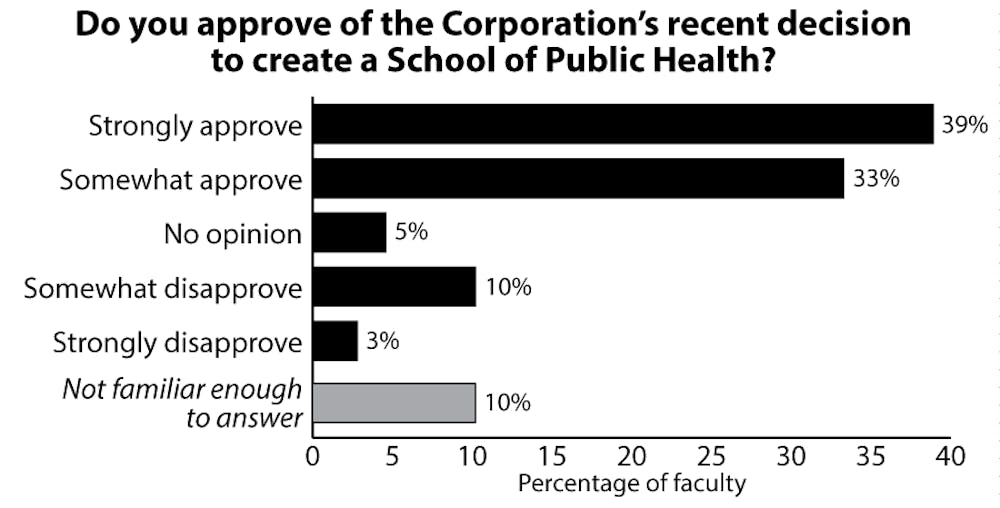About 72 percent of faculty members approve of the creation of the School of Public Health, while only 13 percent disapprove, according to a recent Herald poll of the faculty.
The Faculty Executive Council voted unanimously to approve the school’s creation last November.
“As an advisor, I see so many of my students taking courses in public health,” especially those interested in medical careers, said Andrea Sobieraj, manager of physiology courses. Even for non-science concentrators, public health courses offer useful information, she said.
Peter Richardson, professor of engineering and a member of the FEC, said he thinks the new school “could be a good step.” Harvard’s School of Public Health brought the university fame and is responsible for breakthrough research projects, he said. Research is the best way for people in the field stay up-to-date with medical advances, he added.
But a detailed understanding of current events and the history of the field is necessary to make an informed judgment on whether the University should have a School of Public Health, Richardson said.
The show of support is “wonderful,” said Terrie Wetle, associate dean of medicine for public health and public policy and future dean of the School of Public Health. “A whole group of us from the president’s office on down have worked very hard to have this come into being, so (the widespread support for the school) is exciting news for me,” she said.
The new school’s leaders carefully crafted and publicized the original proposal for the school, keeping questions or concerns from arising when it came time to decide whether to approve the school, said Iris Bahar, professor of engineering and vice president of the FEC.
Faculty members are relatively well-informed about the school’s creation, according to the poll results. Only 10 percent of faculty responded that they did not know enough to determine whether or not they approve.
“I think most faculty knew it was going on,” Bahar said. “At the very least, they had a chance to know. There wasn’t any lack of communication had they wished to learn about it.”
Wetle said she presented her ideas to many different departments and groups of faculty members — she spoke to the Academics Priorities Committee and the Biomedical Faculty Council and the faculty as a whole at a general meeting — as she worked on creating the proposal. She discussed ways to continue collaborations for research projects with some faculty members outside of the school, she added.
Despite faculty awareness of the project, faculty members in other departments rarely discuss the school’s creation.
“There wasn’t a lot of discussion around it, and there wasn’t really a lot of controversy,” Bahar said.
“I’ve never had a conversation about it,” said Nathaniel Baum-Snow, associate professor of economics, adding that he does not have an opinion about the school since he has not researched it and has little information about it. Sobieraj also said she has not discussed it with other faculty members.
Concentrators in community health said they were not surprised faculty members approved of the new school.
“It’s exciting that other professors see it as a beneficial thing for the school,” said Sasha Land ’15, adding that she has not heard professors in other departments mention the school but would expect them to approve.
Most students said they were unaware of the faculty’s feelings about the school’s creation, but some said they were not surprised faculty members showed support.
“Most professors would approve of any new thing unless they have a reason not to,” said Kellie Roddy ’15, adding that she does not know much about the school’s creation but is happy the faculty are supporting each other.
Methodology
Questionnaires were sent to the email accounts of faculty members and advertised on the faculty Morning Mail April 9. Only faculty that teach, advise or interact with undergraduate students were invited to respond, and 120 responses were recorded out of a population of 713. The poll has a 8.7 percent margin of error with 95 percent confidence.
Find results of previous polls at thebdh.org/poll.

ADVERTISEMENT




